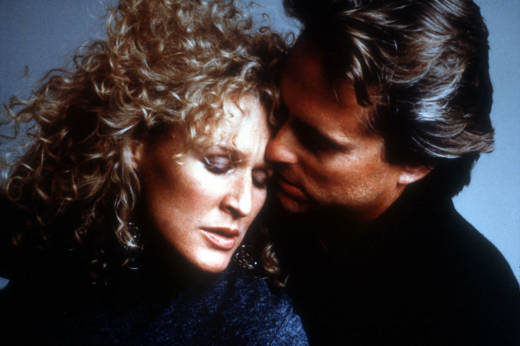Glenn Close also shared that she's recently been thinking about how "wonderful it would be to write that story from [Alex's] point of view. That, I think, would be really interesting." It might also do some correcting of the original's imbalances, particularly the elements that painted Dan Gallagher as a hapless victim.
In 2018, any father-to-be in a movie angrily asking a pregnant woman why she didn't use contraception would automatically be viewed as the villain. The woman onscreen declaring that she could and would raise the child on her own would be viewed as resilient. The fact that audiences saw it the other way around in 1987 isn't just astounding, it's evidence of the feminist progress we've made in the years since.
But three decades after Fatal Attraction's release, especially in the midst of #TimesUp and #MeToo, it's hard for modern versions of the movie to get off the ground, thanks in part to how vividly the characters of Dan and Alex have continued to live on in the public consciousness. Just last year, Alex was alluded to on Saturday Night Live, during a skit that targeted Kellyanne Conway.
A TV show based on the movie was scrapped by Fox in 2017, despite having Mad Men's Maria and André Jacquemetton on board to write and produce it. A major issue was that no one wanted to star in it; both Megan Fox and Jenna Dewan Tatum are said to have turned it down. And while a Fatal Attraction stage play hit London's West End in 2014, it did so with the original suicide ending.
But perhaps, as Close has suggested, there is a way to revive Fatal Attraction in the 21st century. If done from Alex's perspective, with the kind of nuance it was intended to have the first time around, this story, updated for 2018 audiences, could potentially explore issues like mental health, the far-reaching consequences of abuse, safe sex and the societal impacts of pitting women against each other. It might even prompt a conversation around monogamy and modern marriage. Combining Glenn Close's continuing, deep understanding of Alex as a character along with the kinds of complex approaches to storytelling we've seen recently on the likes of Big Little Lies, Sharp Objects and The Affair, Fatal Attraction could really be something great after all.


